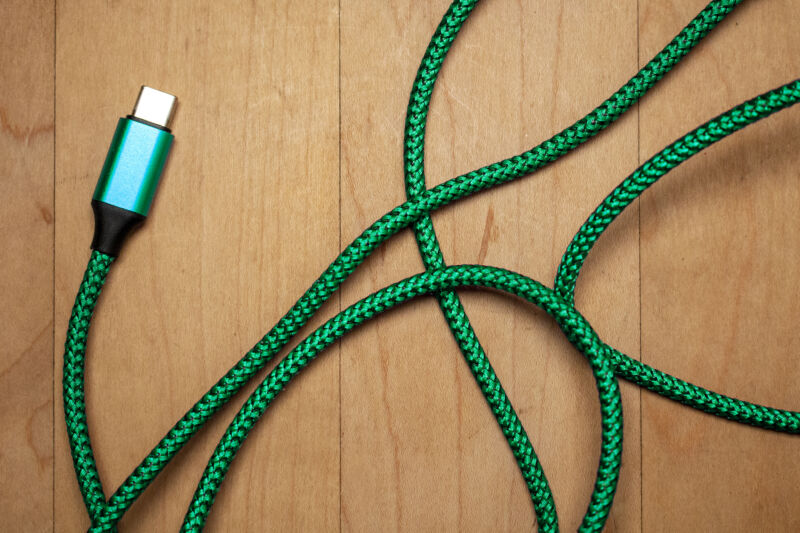USB-C can hit 120Gbps with newly published USB4 Version 2.0 spec

Enlarge / The USB-IF published the USB4 Version 2.0 specification today. (credit: Getty)
We've said it before, and we'll say it again: USB-C is confusing. A USB-C port or cable can support a range of speeds, power capabilities, and other features, depending on the specification used. Today, USB-C can support various data transfer rates, from 0.48Gbps (USB 2.0) all the way to 40Gbps (USB4, Thunderbolt 3, and Thunderbolt 4). Things are only about to intensify as today the USB Implementers Forum (USB-IF) published the USB4 Version 2.0 spec. It adds optional support for 80Gbps bidirectional bandwidth as well the optional ability to send or receive data at up to 120Gbps.
The USB-IF first gave us word of USB4 Version 2.0 in September, saying it would support a data transfer rate of up to 80Gbps in either direction (40Gbps per lane, four lanes total), thanks to a new physical layer architecture (PHY) based on PAM-3 signal encoding. For what it's worth, Intel also demoed Thunderbolt at 80Gbps but hasn't released an official spec yet.
USB4 Version 2.0 offers a nice, potential bump over the original USB4 spec, which introduced optional support for 40Gbps operation. You just have to be sure to check the spec sheets to know what sort of performance you're getting.
Read 13 remaining paragraphs | Comments
from Tech – Ars Technica https://ift.tt/YVtKsUb
Comments
Post a Comment